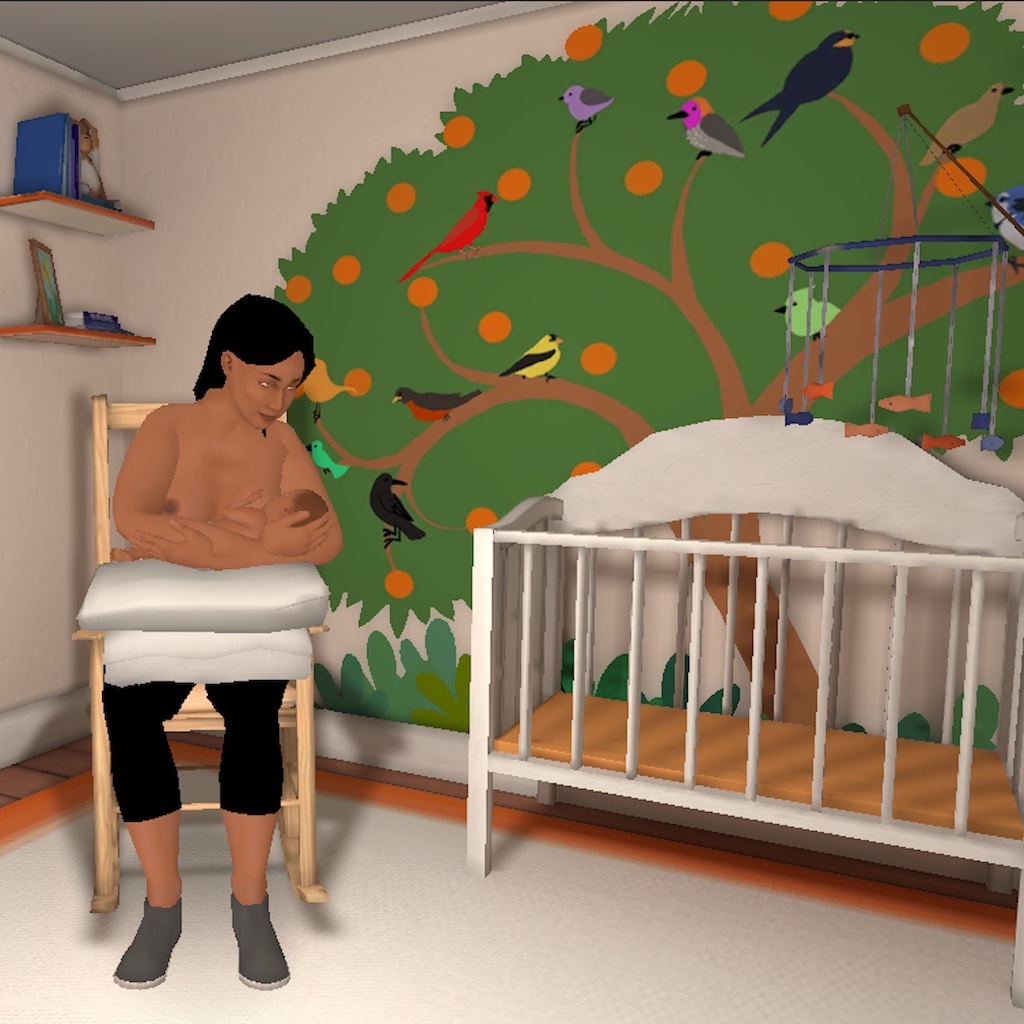
Studies have long drawn a connection between perinatal mood and anxiety disorders (PMADs), chronic stress and depression, as well as shortened gestational periods and even preterm birth. BehaVR is now using VR to create programs that change outcomes for both mom and baby for the better. Around 15-21% of moms-to-be suffer from perinatal mood and anxiety disorders, which often begin as early as the second trimester. 71% of mothers also struggle with stress which affects their pregnancies and puts both them and their babies at risk of preterm birth.
BehaVR’s new maternal health program NutureVR offers a calm, immersive VR environment that supports moms and their families in the comfort of their homes. The program helps mothers visualize the growth of their baby in the womb week-by-week, facilitating an ever-strengthening bond. While most pregnancy support systems focus on the term only, NutureVR continues through labor and delivery, with eight weeks of postpartum programming that illuminates additional challenges like breastfeeding and hormonal change post-birth.
The program officially launches in September. However, In an effort to support low-income or otherwise marginalized families BehaVR teamed up with social impact organization Reach and its “Save Moms” campaign starting in June. At part of this partnership NutureVR will be provided to 5000 families, along with a portion of sales proceeds, to support Reach’s efforts to provide maternal healthcare resources and education to expectant moms at higher risk for complications during and after pregnancy.
The collaboration comes at a time, according to new research from Stanford, during which pregnant women are showing depressive symptoms at a rate two times higher than they were pre-pandemic. Studies have long drawn a connection between perinatal mood and anxiety disorders, which lead to chronic stress depression, and their tendency to lead to shortened gestation periods and preterm delivery — two birthing factors that contribute to the high rates of maternal and infant mortality and morbidity in the United States. And this disturbing trend has a disproportionately negative impact in minority populations: six times higher for Black and African-American women and four times higher for Indigenous and Native American women.
“One of the well documented areas of opportunity in the application of digital technology is in addressing the needs of the medically underserved,” said Dr. Fran Ayalasomayajula, MPH, PMP, president and founder of Reach. “Yet although digital health platforms are demonstrating clinical efficacy in identifying high risk pregnancy and helping to prevent further complications, the adoption among providers remains low, and populations who have the potential to gain the most are not being reached. By promoting self-directed care, BehaVR is unlocking access to tools that women need to help ensure a safe and stress-free delivery and postpartum experience. We immediately recognized NurtureVR as an opportunity to deliver care at scale to a diverse population of women and are encouraged by BehaVR’s long-term focus and investment in addressing this issue,” continued Ayalasomayajula who has published on the topic.
“The Reach team shares our mission to reimagine how people access care that empowers them on their journey to improved health,” said Aaron Gani, founder and CEO of BehaVR. “BehaVR has translated and adapted evidence-based mental health care into the powerful medium of VR and we are excited to fill a therapeutic gap that has long been missing. We are proud to support the ‘Save Moms’ campaign, as well as to continue learning through our partners ways that we can extend the value of the tool we’re creating for those communities who need it most.”



